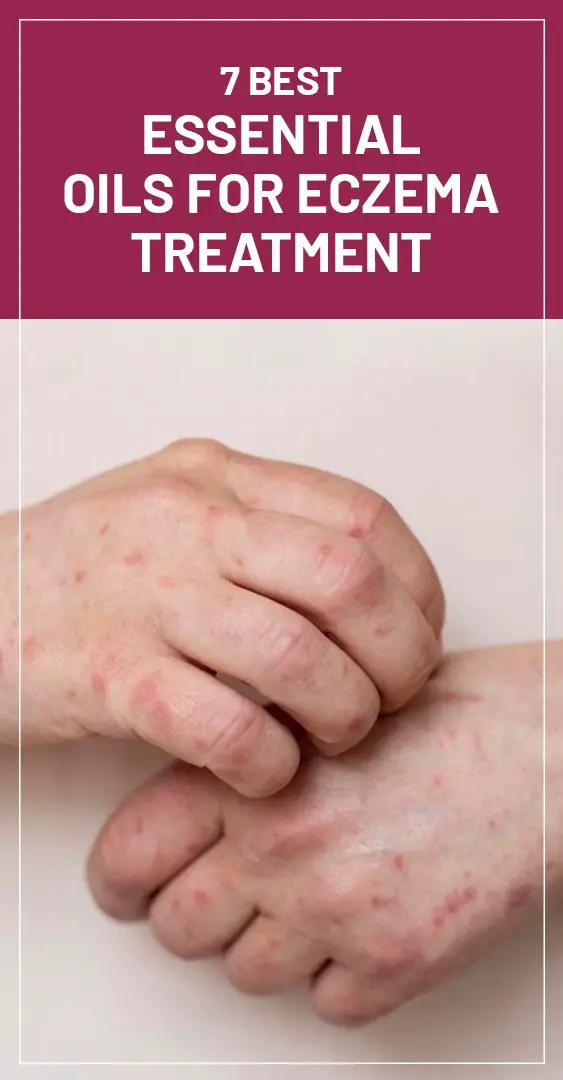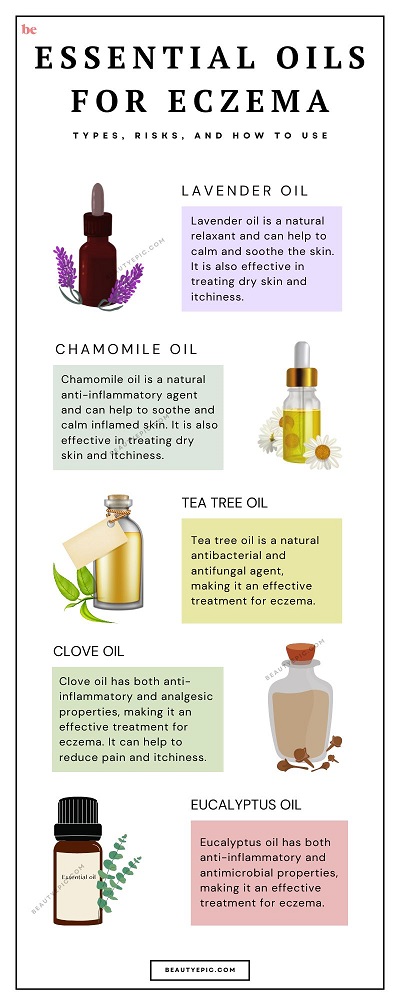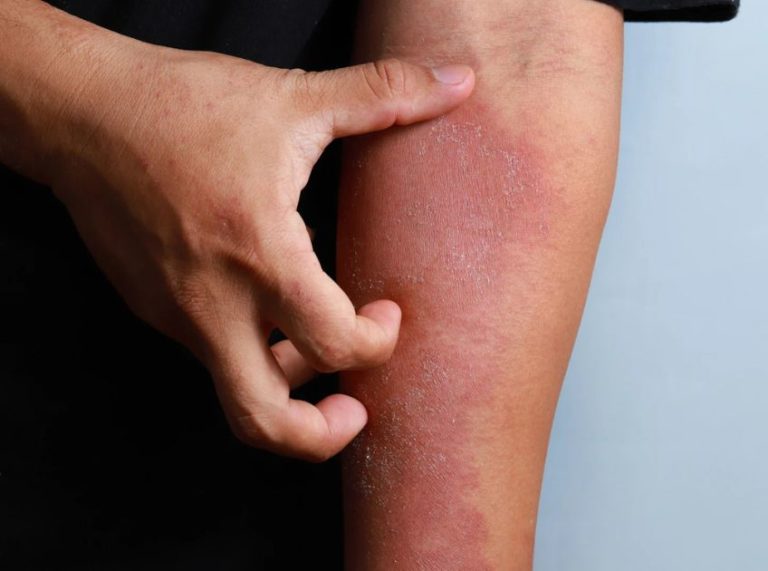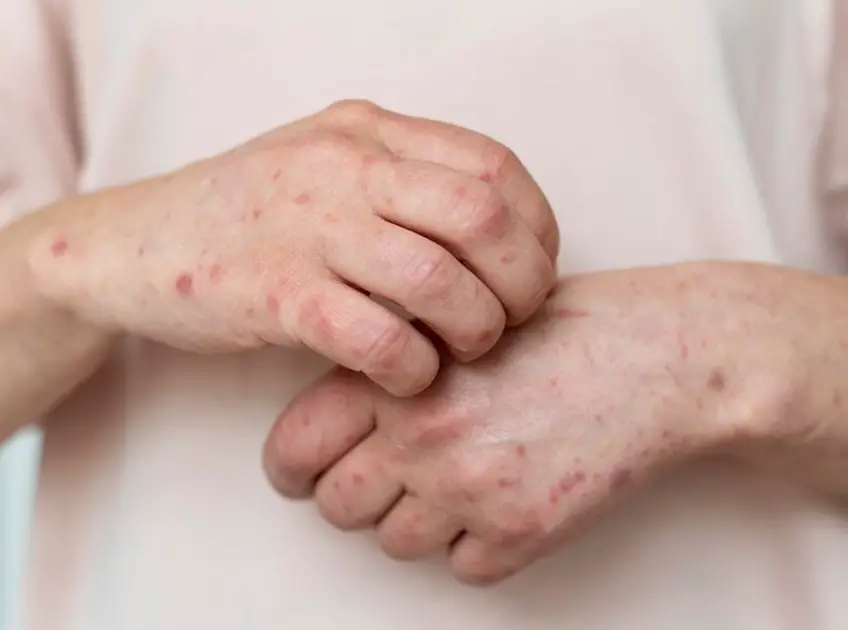
Important: This article is for informational purposes only. Please read our full disclaimer for more details.
If you’re looking for a natural way to treat eczema, essential oils may be just what you need. Eczema is a skin condition that can be both painful and itchy, and it can be difficult to find relief. Essential oils are a natural, effective way to treat eczema and provide relief from the symptoms.
Essential Oils for Eczema Treatment
There are many different essential oils that can be used to treat eczema, but some of the most effective include chamomile oil, eucalyptus oil, geranium oil, clove oil, tea tree oil, lavender oil and frankincense oil.
1. Chamomile Oil
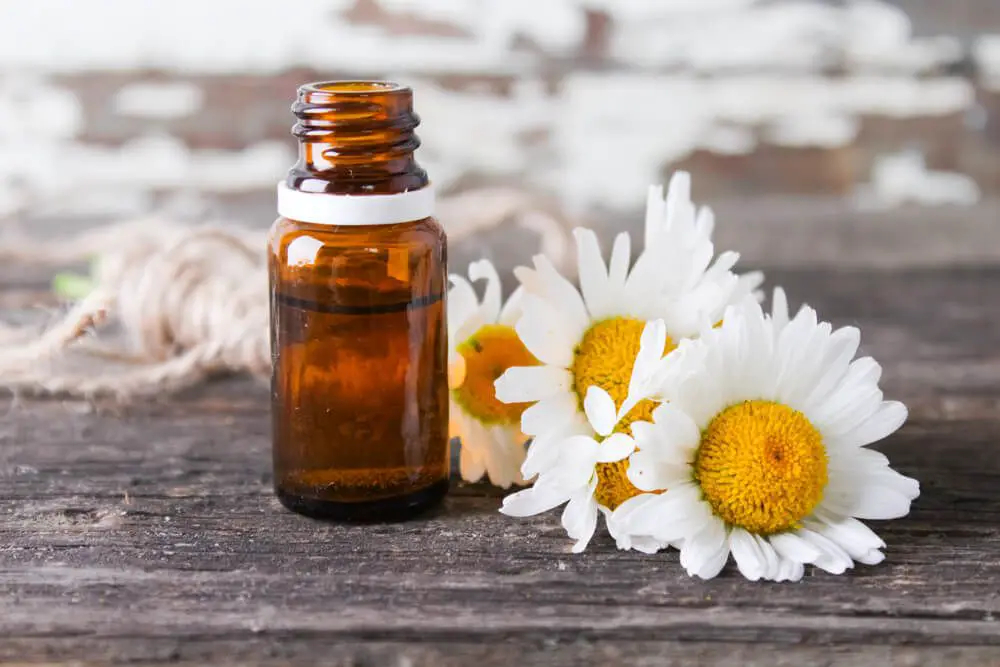
Chamomile oil is a natural anti-inflammatory agent and can help to soothe and calm inflamed skin. It is also effective in treating dry skin and itchiness. [1]
[ Recommended: Natural Remedies for Eczema Relief ]
2. Eucalyptus Oil
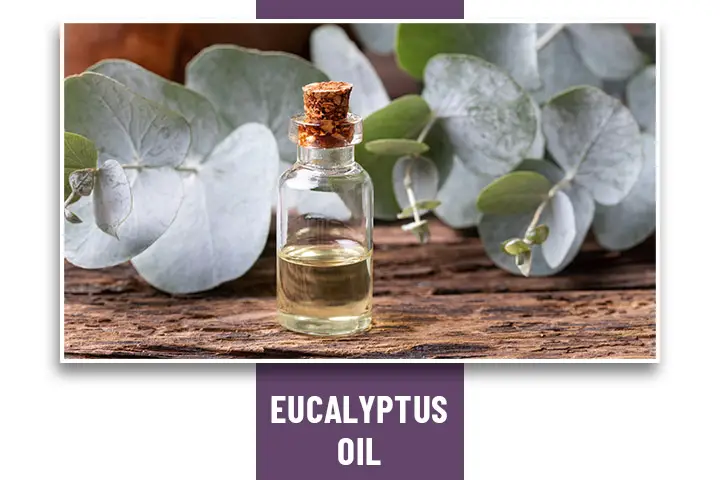
Eucalyptus oil has both anti-inflammatory and antimicrobial properties, making it an effective treatment for eczema. It can help to soothe the skin and reduce itching and irritation. [2]
3. Geranium Oil
Geranium oil is another effective essential oil for treating eczema. It helps to balance the production of sebum, which can lead to dry, cracked skin. It also has antimicrobial properties that can help to fight infection. [3]
[ Recommended: Coconut Oil for Eczema: How To Treat? ]
4. Clove Oil

Clove oil has both anti-inflammatory and analgesic properties, making it an effective treatment for eczema. It can help to soothe the skin and reduce pain and itchiness. [4]
[ Recommended: How To Treat Eczema With Tea Tree Oil? ]
5. Tea Tree Oil
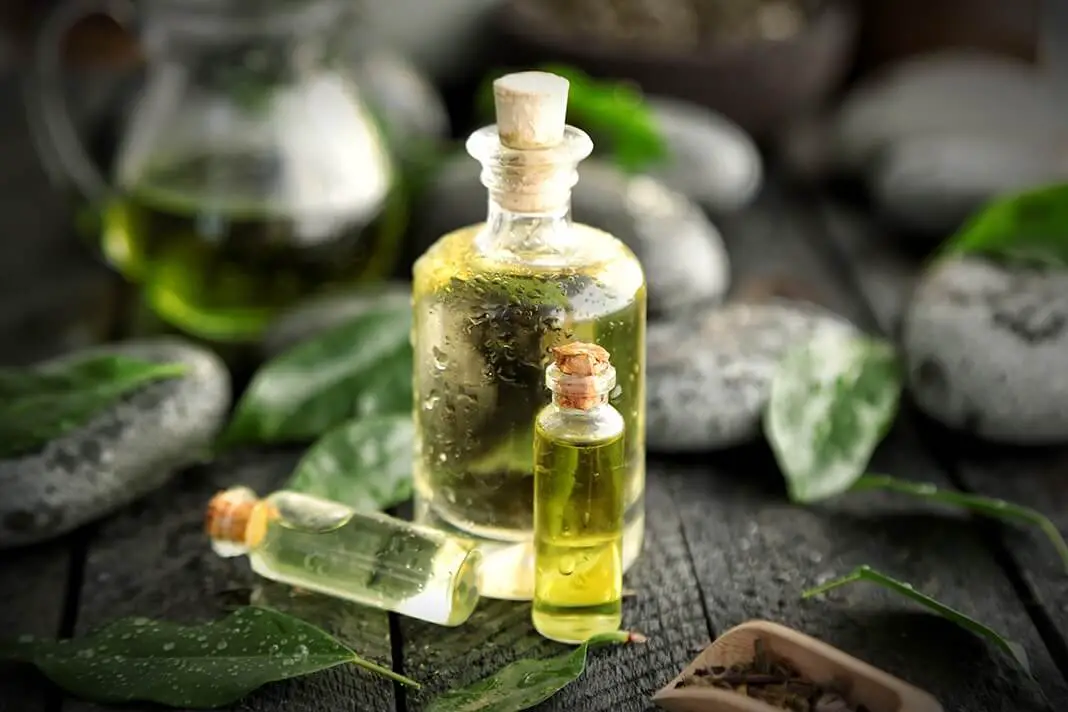
Tea tree oil is a natural antibacterial and antifungal agent, making it an effective treatment for eczema. It can help to fight infection and soothe the skin.
[ Recommended: Apple cider vinegar for eczema: How it works and uses? ]
6. Lavender Oil
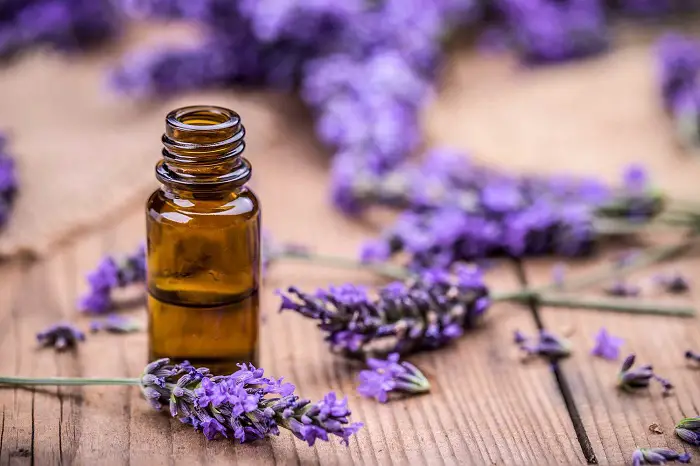
Lavender oil is a natural relaxant and can help to calm and soothe the skin. It is also effective in treating dry skin and itchiness. Further studies are still needed to prove this oil in treating eczema.
7. Frankincense Oil
Frankincense oil is a natural astringent and can help to tighten the skin. It is also effective in treating dry skin and reducing inflammation. Further studies are still needed to prove this oil in treating eczema.
How to Use Essential Oils for Eczema?
By diluting the essential oils in a carrier oil, you can create a natural remedy for eczema that can be applied topically to the affected area.
- Dilute the essential oil in a carrier oil such as jojoba oil, coconut oil or olive oil.
- Apply the mixture to the affected area and massage it in gently.
- Repeat the process 3-4 times per day for best results.
What Are The Side Effects of Using Essential Oils for Eczema?
Essential oils are generally safe to use, but they can cause allergic reactions in some people. If you experience any irritation or redness after using an essential oil, discontinue use immediately and consult your doctor.
It’s also important to note that essential oils should never be used internally.
Essential oils are a natural, effective way to treat eczema and provide relief from the symptoms. There is not enough evidence that all of these oils may help eczema, so we recommend consulting a doctor before using them. Although some oils were seen to reduce the triggers and symptoms in some people. Here you have some of the essential oils that may help soothe eczema, so use them with care and always do a patch test before use to check for any allergies.
Caution: Pregnant women, Breastfeeding women and Children must not use essential oils unless directed by a professional healthcare physician.
You Might Also Like:
- Aloe Vera for Eczema: How to Use?
- Shea Butter for Eczema: How It Helps Soothe Itchy Skin
- How to Use Vaseline for Eczema?
- How to Use Epsom Salt for Eczema?
- emuaid EMUAIDMAX: Natural Skincare for All Ages
- 8 Essential Oils for Migraine Pain Relief | How To Use It
- 15 Best Essential Oils for Cough: Benefits & How to Use
- The 10 Best Essential Oils for Acne
- 10 Best Essential Oils for Headaches
- Essential Oils for Hair Loss: Benefits and How to Use
- 10 Calming Essential Oils for Relaxation
- The 10 Best Essential Oils For Itchy Bug Bite Relief
- The 10 Best Essential Oils For Burns
- Top 5 Essential Oils That Help Psoriasis
- Essential Oil For Keratosis Pilaris
- 10 Calming Essential Oils for Relaxation
- 10 Best Essential Oils For Hemorrhoids Pain
- 7 Best Face Washes For Eczema
